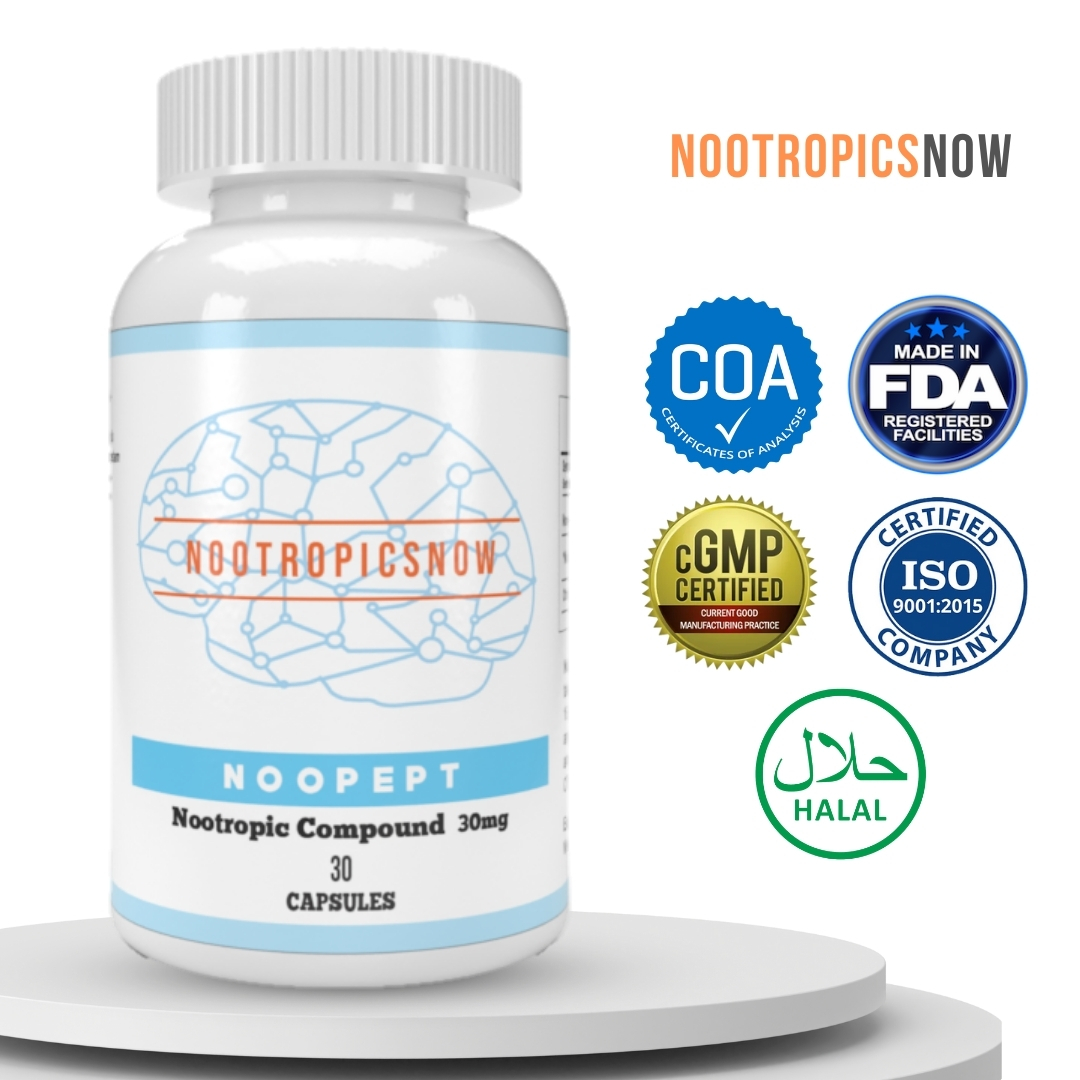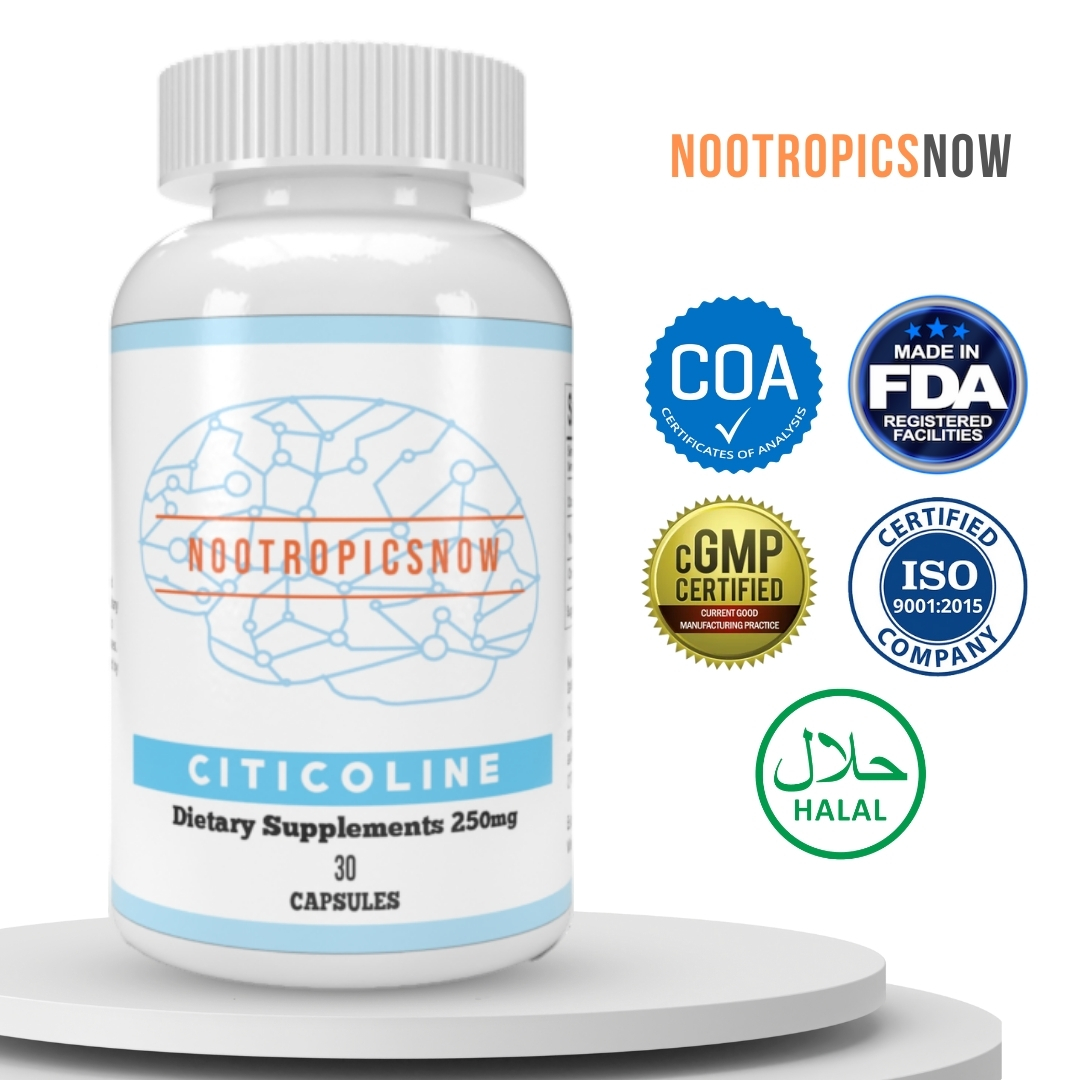Noopept Benefits: Memory, Focus & More

`markdown
Noopept Benefits: A Deep Dive into Cognitive Enhancement and Neuroprotection

Noopept (N-Phenylacetyl-L-prolylglycine ethyl ester) is a synthetic nootropic gaining significant traction for its potential cognitive-enhancing and neuroprotective properties. It is often compared to the racetam family of nootropics, such as Piracetam, but is purportedly much more potent, requiring smaller dosages. Therefore, this article provides a detailed examination of Noopept’s benefits, mechanisms of action, and considerations for use.
What is Noopept?
Before exploring the benefits, understanding Noopept itself is crucial. Noopept is a peptide derivative that was developed in Russia in the 1990s. It’s considered a prodrug, meaning it’s converted into active metabolites in the body. Its primary metabolites, cycloprolylglycine (CPG), are thought to be responsible for many of its cognitive effects.
Cognitive Enhancement: Sharpening Mental Acuity
One of the primary reasons individuals turn to Noopept is its ability to enhance cognitive function. Several studies suggest that Noopept can improve various aspects of cognition, including memory, learning, and focus. Therefore, understanding the nuances of these cognitive benefits is important.
Memory Enhancement: Strengthening Recall and Retention
Noopept has demonstrated potential in improving both memory formation and recall. It achieves this in several ways. Firstly, it increases the levels of Brain-Derived Neurotrophic Factor (BDNF) and Nerve Growth Factor (NGF), crucial proteins involved in neuronal growth, survival, and differentiation. Furthermore, these neurotrophic factors are essential for synaptic plasticity, the brain’s ability to form new connections, which underpins learning and memory.
Secondly, Noopept may enhance memory by modulating neurotransmitter systems, particularly cholinergic and glutamatergic systems. These neurotransmitter systems play vital roles in learning, memory, and synaptic plasticity. Research suggests Noopept can influence the activity of acetylcholine, a neurotransmitter critical for memory and learning.
Enhanced Learning Capacity: Accelerating Acquisition of New Information
Beyond memory, Noopept can improve learning capacity. By enhancing synaptic plasticity and increasing neurotrophic factors, Noopept may facilitate the brain’s ability to acquire and process new information efficiently. This suggests that individuals using Noopept may experience faster learning rates and an improved ability to grasp complex concepts. Consequently, this can be particularly beneficial for students, professionals, and anyone engaged in intellectually demanding activities.
Improved Focus and Concentration: Sustaining Attention Span
Focus and concentration are essential for productivity and cognitive performance. Moreover, Noopept can improve attention span and the ability to focus on tasks for extended periods. This effect is likely related to its modulation of neurotransmitter systems involved in attention and arousal. By increasing dopamine levels, Noopept can enhance motivation, focus, and alertness. Subsequently, this can enable individuals to maintain concentration more effectively, reducing distractibility and improving overall productivity.
Neuroprotection: Safeguarding Brain Health
In addition to its cognitive-enhancing effects, Noopept exhibits neuroprotective properties. This means that it can help protect brain cells from damage and degeneration, which are key factors in age-related cognitive decline and neurodegenerative diseases. Therefore, examining the different ways Noopept provides neuroprotection is crucial.
Antioxidant Effects: Combating Oxidative Stress
Oxidative stress, caused by an imbalance between free radicals and antioxidants, can damage brain cells and contribute to cognitive decline. Noopept acts as an antioxidant, neutralizing free radicals and reducing oxidative stress in the brain. Thus, this protective effect helps maintain neuronal health and function.
Anti-inflammatory Properties: Reducing Brain Inflammation
Chronic inflammation can also damage brain cells and contribute to neurodegenerative diseases. Noopept possesses anti-inflammatory properties, reducing inflammation in the brain and protecting neurons from inflammatory damage. This anti-inflammatory action supports overall brain health and can potentially slow down age-related cognitive decline.
Protection Against Excitotoxicity: Preventing Neuronal Overstimulation
Excitotoxicity occurs when neurons are overstimulated by neurotransmitters like glutamate, leading to cell damage or death. Noopept protects against excitotoxicity by modulating glutamate activity and preventing excessive neuronal stimulation. Therefore, this effect is particularly relevant in conditions such as stroke and traumatic brain injury, where excitotoxicity can exacerbate brain damage.
Mood and Anxiety: Alleviating Emotional Distress
Anecdotal reports and some studies suggest that Noopept can positively impact mood and reduce anxiety. However, more research is needed to fully understand the mechanisms and efficacy of these effects.
Reducing Anxiety: Promoting Relaxation
Some users report that Noopept can reduce feelings of anxiety and promote a sense of calmness. This anxiolytic effect might be related to its influence on neurotransmitter systems involved in mood regulation, such as GABA and serotonin. By modulating these systems, Noopept can help alleviate anxiety symptoms and promote a more relaxed state.
Improving Mood: Elevating Emotional State
In addition to reducing anxiety, Noopept may also improve overall mood. Some users report experiencing increased feelings of well-being, motivation, and optimism. These mood-enhancing effects could be attributed to its influence on dopamine and other neurotransmitters involved in reward and motivation. Moreover, this can be particularly beneficial for individuals experiencing low mood, fatigue, or lack of motivation.
Other Potential Benefits: Exploring Emerging Research
Besides the well-established benefits, ongoing research is exploring other potential uses of Noopept. While these findings are preliminary, they suggest a broader range of applications for this nootropic compound.
Enhanced Sensory Perception: Heightening Awareness
Some users report experiencing heightened sensory perception while taking Noopept. This includes increased visual clarity, enhanced sound sensitivity, and improved taste and smell. Moreover, these effects could be related to its ability to enhance neuronal communication and increase brain activity in sensory processing areas.
Improved Sleep Quality: Promoting Restful Sleep
Paradoxically, while Noopept is known for enhancing wakefulness and alertness, some users report experiencing improved sleep quality. This could be due to its anxiolytic effects, which can help reduce anxiety and promote relaxation before bedtime. Furthermore, improved sleep can indirectly benefit cognitive function and overall well-being.
Noopept Dosage and Administration: Optimizing Use
The optimal dosage of Noopept can vary depending on individual factors such as age, weight, and sensitivity to the compound. However, a common starting dose is 10-20mg taken twice daily. It’s generally recommended to start with a lower dose and gradually increase it as needed to assess tolerance and optimize effects.

View Product
Noopept is available in various forms, including capsules, tablets, and powder. It can be taken sublingually (under the tongue) for faster absorption or swallowed with water. Some users report that sublingual administration results in quicker onset of effects.
Noopept Side Effects and Safety: Addressing Concerns
While Noopept is generally considered safe, some individuals may experience side effects, particularly at higher doses. Common side effects include:
It’s important to note that these side effects are typically mild and transient. However, if they persist or become bothersome, reducing the dosage or discontinuing use is recommended.
Contraindications and Interactions: Exercising Caution
Noopept may interact with certain medications, particularly those that affect neurotransmitter systems. It’s essential to consult with a healthcare professional before taking Noopept if you are taking any medications or have any underlying health conditions.
Comparing Noopept to Other Nootropics: Evaluating Options
When considering Noopept, it’s helpful to compare it to other popular nootropics to determine which one best suits individual needs and preferences.
Noopept vs. Piracetam: Examining Differences
Piracetam is a well-known nootropic from the racetam family, often used for cognitive enhancement. While both Noopept and Piracetam can improve memory and learning, Noopept is considered significantly more potent, requiring much lower dosages. Additionally, some users report that Noopept has a more pronounced effect on focus and motivation compared to Piracetam.
Noopept vs. Alpha-GPC: Combining Benefits
Alpha-GPC is a choline supplement that supports acetylcholine production, a neurotransmitter vital for memory and learning. While Alpha-GPC primarily enhances cholinergic function, Noopept has a broader range of effects on various neurotransmitter systems. Some users combine Noopept with Alpha-GPC to synergistically enhance cognitive function.

View Product
Noopept Stacks: Synergistic Combinations
Stacking Noopept with other nootropics can enhance its effects and provide a more comprehensive cognitive boost. However, it’s crucial to research and experiment carefully to find the right combination that works best for you.
Noopept and Choline: Enhancing Memory
Combining Noopept with a choline source like Alpha-GPC or CDP-Choline can enhance memory and prevent potential headaches associated with Noopept use. Choline supports acetylcholine production, which synergizes with Noopept’s effects on cholinergic neurotransmission.

View Product
Noopept and L-Theanine: Promoting Calm Focus

View Product
L-Theanine is an amino acid known for its calming and focus-enhancing properties. Combining Noopept with L-Theanine can promote a state of calm focus, reducing anxiety and improving attention span.
Responsible Use of Noopept: Prioritizing Health
As with any supplement or medication, responsible use of Noopept is essential. This includes starting with a low dose, monitoring for side effects, and consulting with a healthcare professional. Additionally, it’s important to take breaks from Noopept use to prevent tolerance and maintain its effectiveness.
Cycling Noopept: Preventing Tolerance
Cycling Noopept involves taking it for a certain period, followed by a break. This helps prevent tolerance and maintain its cognitive-enhancing effects. A common cycling schedule is taking Noopept for 4-8 weeks, followed by a break of 2-4 weeks.
Noopept 2024: Current Research and Future Directions
Research on Noopept is ongoing, with studies exploring its potential benefits for various cognitive and neurological conditions. Future research will likely focus on:
Conclusion: Weighing the Evidence
Noopept is a promising nootropic compound with potential benefits for cognitive enhancement, neuroprotection, and mood regulation. While research supports its efficacy, it’s essential to use it responsibly and consult with a healthcare professional before starting supplementation. By understanding the benefits, side effects, and proper usage of Noopept, individuals can make informed decisions about whether it’s the right nootropic for them. Furthermore, staying updated with the latest research will ensure that usage aligns with evidence-based practices.
`
`markdown
Noopept Benefits: A Comprehensive Exploration of Cognitive Enhancement and Beyond
Noopept (N-Phenylacetyl-L-prolylglycine ethyl ester) represents a powerful nootropic compound gaining considerable attention within cognitive enhancement circles. This synthetic molecule, developed in Russia, offers a range of potential benefits affecting memory, focus, and overall brain health. This section examines the extensively documented benefits of Noopept, referencing scientific studies and research to provide a comprehensive understanding of its effects.
Enhanced Cognitive Function
Noopept’s primary appeal lies in its ability to enhance cognitive functions. Users frequently report improvements in memory recall, focus, and learning capacity. This enhancement stems from Noopept’s influence on crucial brain processes, including stimulating nerve cell regeneration and boosting neurotransmitter activity.
Amplified Memory and Learning Capacity
Studies suggest Noopept amplifies memory consolidation and retrieval. This manifests as an improved ability to form new memories and recall existing ones. Furthermore, users note enhanced learning capacity, suggesting Noopept facilitates the acquisition of new information and skills more effectively. One study published in the journal “Brain Research” demonstrated that Noopept significantly improved memory consolidation in rats. The study showed that Noopept increased the expression of brain-derived neurotrophic factor (BDNF), a protein crucial for learning and memory.
Sharpened Focus and Concentration
Beyond memory enhancement, Noopept promotes sharper focus and concentration. Individuals find it easier to maintain attention on tasks, minimizing distractions and enhancing productivity. This makes Noopept appealing to students, professionals, and anyone requiring sustained mental effort.
Neuroprotective Properties
Beyond cognitive enhancement, Noopept exerts significant neuroprotective effects. It safeguards brain cells from damage and supports overall brain health. This is particularly relevant in the context of aging and neurodegenerative diseases.
Protection Against Glutamate Toxicity
Noopept prevents the toxic effects of excess glutamate, a neurotransmitter that, at high concentrations, can damage brain cells. By modulating glutamate activity, Noopept protects neurons from excitotoxicity, a process implicated in various neurological disorders.
Antioxidant Activity
Noopept exhibits antioxidant properties, scavenging free radicals that can damage brain cells. This antioxidant action reduces oxidative stress, protecting against cellular damage and supporting long-term brain health. A 2009 study in “Neurochemistry International” highlighted Noopept’s antioxidant activity, demonstrating its ability to protect neurons from oxidative damage in vitro.
The BDNF/NGF Connection
One of Noopept’s most significant mechanisms of action involves increasing the production of Brain-Derived Neurotrophic Factor (BDNF) and Nerve Growth Factor (NGF). These proteins play pivotal roles in neuronal growth, survival, and synaptic plasticity.
BDNF and Synaptic Plasticity
BDNF is essential for synaptic plasticity, the brain’s ability to reorganize itself by forming new neural connections. This is crucial for learning, memory, and adaptation to new experiences. By increasing BDNF levels, Noopept promotes synaptic plasticity, facilitating cognitive enhancement and adaptation.
NGF and Neuronal Survival
NGF supports the survival and growth of neurons, particularly cholinergic neurons, which are crucial for memory and cognitive function. By increasing NGF levels, Noopept supports neuronal health and protects against age-related cognitive decline.
Mood Enhancement and Anxiety Reduction
Anecdotal evidence and preliminary research suggest that Noopept can improve mood and reduce anxiety. These effects are likely linked to its influence on neurotransmitter systems involved in mood regulation.
Modulation of Neurotransmitters
Noopept may modulate the activity of neurotransmitters like dopamine and serotonin, which play critical roles in mood regulation. By influencing these systems, Noopept can potentially alleviate symptoms of anxiety and depression. User reviews often mention a subtle but noticeable improvement in mood and a reduction in feelings of stress and overwhelm.
Potential for Anxiety Relief
Some users report that Noopept helps to reduce anxiety, particularly social anxiety. While more research is needed, this effect may be related to its ability to promote relaxation and reduce mental stress.
Potential Benefits for Neurodegenerative Conditions
Due to its neuroprotective and cognitive-enhancing properties, Noopept shows promise as a potential treatment for neurodegenerative conditions such as Alzheimer’s disease.
Improvement of Cognitive Function in MCI
Studies have investigated the effects of Noopept in individuals with mild cognitive impairment (MCI), a precursor to Alzheimer’s disease. Some studies have reported improvements in cognitive function, including memory and attention, in patients treated with Noopept.
Neuroprotective Effects in Alzheimer’s Models
Research suggests Noopept may protect against the neurotoxic effects of amyloid-beta, a protein implicated in Alzheimer’s disease. This suggests Noopept could potentially slow the progression of the disease.
Dosage and Administration
The typical dosage of Noopept ranges from 10 to 30 mg per day, taken in divided doses. It is rapidly absorbed and crosses the blood-brain barrier quickly.
Sublingual Administration
Noopept can be administered sublingually, allowing for faster absorption and more rapid onset of effects. This involves placing the powder under the tongue and allowing it to dissolve.
Cycling
Some users recommend cycling Noopept to prevent tolerance from developing. This involves taking Noopept for a period of time, followed by a break.
Side Effects and Safety
Noopept is generally well-tolerated, but some users may experience mild side effects such as headaches, irritability, and insomnia.
Headache Mitigation
Headaches are a common side effect, particularly when starting Noopept. This can often be mitigated by ensuring adequate hydration and taking choline supplements.
Interactions with Other Medications
It is crucial to consult with a healthcare professional before taking Noopept, especially if you are taking other medications. Noopept may interact with certain medications, such as blood thinners and antidepressants.
Stacking Noopept
Many users combine Noopept with other nootropics to enhance its effects. This is known as “stacking.”
Popular Stacks
Some popular Noopept stacks include combining it with choline sources like Alpha GPC or Citicoline, or combining it with racetams like Piracetam or Aniracetam. These combinations aim to synergistically enhance cognitive functions.
View Product
Benefits of Stacking
Stacking can potentially enhance the cognitive benefits of Noopept, such as improved memory, focus, and mood. However, it is essential to research and understand the potential interactions and side effects of combining different nootropics.
Considerations for Use
Before starting Noopept, it is essential to consider several factors.
Consultation with a Healthcare Professional
It is always advisable to consult with a healthcare professional before starting any new supplement, including Noopept. This is particularly important if you have any underlying health conditions or are taking other medications.
Sourcing High-Quality Products
Ensure you are sourcing Noopept from a reputable supplier to ensure quality and purity. Counterfeit or low-quality products may not provide the desired benefits and could potentially be harmful.

View Product
Monitoring Effects
Pay close attention to how your body responds to Noopept. Monitor any side effects and adjust your dosage accordingly. Keeping a journal can be helpful for tracking your experiences.
Comparing Noopept to Other Nootropics
Noopept is often compared to other nootropics, particularly racetams like Piracetam.
Noopept vs. Piracetam
While both Noopept and Piracetam are known for their cognitive-enhancing properties, they have different mechanisms of action. Noopept is significantly more potent than Piracetam, requiring much smaller doses. Some users find Noopept to be more stimulating, while others prefer the more subtle effects of Piracetam.

View Product
Other Alternatives
Other nootropic alternatives include Alpha-GPC (for Choline) and Lion’s Mane Mushroom.

View Product
The Future of Noopept Research
Ongoing research continues to explore the potential benefits of Noopept for cognitive enhancement and neuroprotection. Future studies will likely focus on its role in treating neurodegenerative diseases and its long-term effects on brain health.
Potential for New Applications
As research progresses, Noopept may find new applications in treating various neurological and psychiatric conditions. Its ability to enhance cognitive function, protect brain cells, and improve mood makes it a promising therapeutic agent.
Understanding Long-Term Effects
More research is needed to fully understand the long-term effects of Noopept. This includes investigating its potential for tolerance, dependence, and any potential risks associated with long-term use.
Noopept and the Aging Brain
One of the most promising areas of research is Noopept’s potential to combat age-related cognitive decline.
Enhancing Cognitive Resilience
By promoting neuroplasticity and protecting against oxidative stress, Noopept may help to enhance cognitive resilience, making the brain more resistant to the effects of aging.
Potential for Preventing Cognitive Decline
Studies are investigating whether Noopept can help to prevent or delay the onset of cognitive decline in older adults. This could have significant implications for the prevention and treatment of age-related cognitive disorders.
Noopept and Stroke Recovery
Research suggests that Noopept may play a role in stroke recovery, aiding in neuronal repair and functional restoration.
Promoting Neurogenesis
Noopept can promote neurogenesis, the formation of new neurons, in the brain. This is crucial for recovery after a stroke, as it can help to replace damaged neurons and restore lost function.
Improving Motor Function
Studies have shown that Noopept can improve motor function in animals after a stroke. This suggests it may have potential for improving motor recovery in humans as well.
Noopept and ADHD
Although not a primary treatment for ADHD, some individuals with ADHD have reported improvements in focus and attention with Noopept. However, further research is needed in this area.
Potential for Symptom Management
Noopept might potentially aid in managing certain ADHD symptoms such as inattention and impulsivity by modulating neurotransmitter activity in the brain.
Not a Substitute for Traditional Treatments
It’s important to emphasize that Noopept should not be considered a substitute for traditional ADHD treatments such as medication and therapy. It should only be used under the guidance of a healthcare professional.
The Importance of a Holistic Approach
While nootropics like Noopept can offer cognitive benefits, they are most effective when combined with a holistic approach to brain health.
Nutrition
A healthy diet rich in fruits, vegetables, and healthy fats is crucial for brain health. Certain nutrients, such as omega-3 fatty acids and antioxidants, are particularly important for cognitive function.
Exercise
Regular physical exercise has been shown to improve cognitive function and protect against age-related cognitive decline. Exercise increases blood flow to the brain and promotes the release of BDNF.
Sleep
Adequate sleep is essential for cognitive function. During sleep, the brain consolidates memories and clears out toxins. Aim for 7-8 hours of sleep per night.
Conclusion
Noopept stands out as a promising nootropic compound with a range of potential cognitive-enhancing and neuroprotective benefits. From enhancing memory and focus to protecting against brain damage and potentially aiding in stroke recovery, its diverse mechanisms of action make it a subject of intense research and interest. While further studies are needed to fully elucidate its long-term effects and optimal applications, the existing evidence suggests that Noopept holds significant potential for improving cognitive function and promoting brain health. As with any supplement or medication, responsible use and consultation with a healthcare professional are crucial. Understanding the benefits, potential side effects, and proper usage guidelines will ensure a safe and effective experience with Noopept.
`

